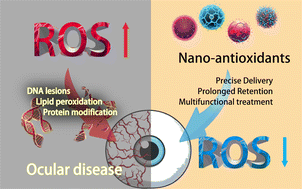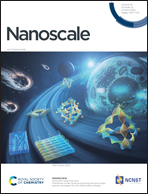Revolutionizing eye care: the game-changing applications of nano-antioxidants in ophthalmology
Abstract
Since the theory of free radical-induced aging was proposed in 1956, it has been constantly proven that reactive oxygen species (ROS) produced by oxidative stress play a vital role in the occurrence and progression of eye diseases. However, the inherent limitations of traditional drug therapy hindered the development of ophthalmic disease treatment. In recent years, great achievements have been made in the research of nanomedicine, which promotes the rapid development of safe theranostics in ophthalmology. In this review, we focus on the applications of antioxidant nanomedicine in the treatment of ophthalmology. The eye diseases were mainly classified into two categories: ocular surface diseases and posterior eye diseases. In each part, we first introduced the pathology of specific diseases about oxidative stress, and then presented the representative application examples of nano-antioxidants in eye disease therapy. Meanwhile, the nanocarriers that were used, the mechanism of function, and the therapeutic effect were also presented. Finally, we summarized the latest research progress and limitations of antioxidant nanomedicine for eye disease treatment and put forward the prospects of future development.

- This article is part of the themed collections: 2025 Chinese New Year Collection and Recent Review Articles


 Please wait while we load your content...
Please wait while we load your content...